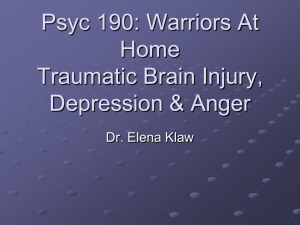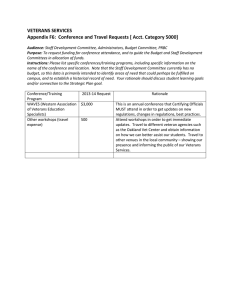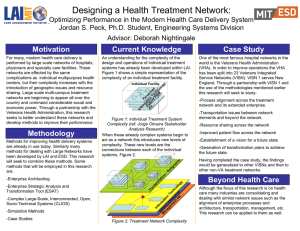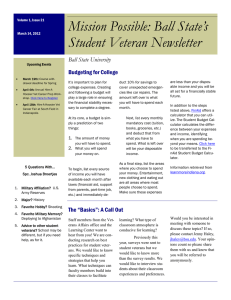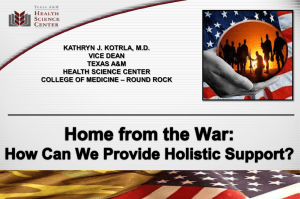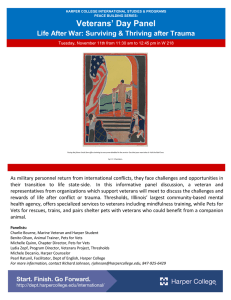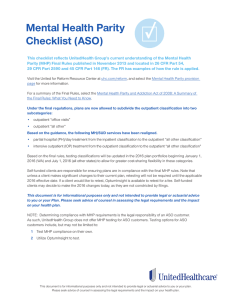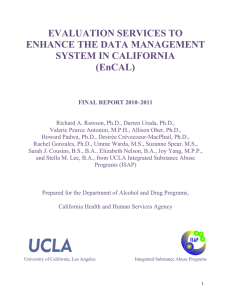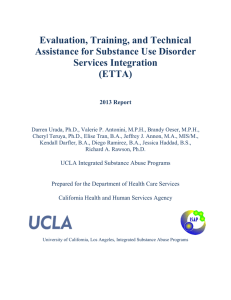VA Mental Health Services: We’re Not Your Father’s VA Anymore!
advertisement
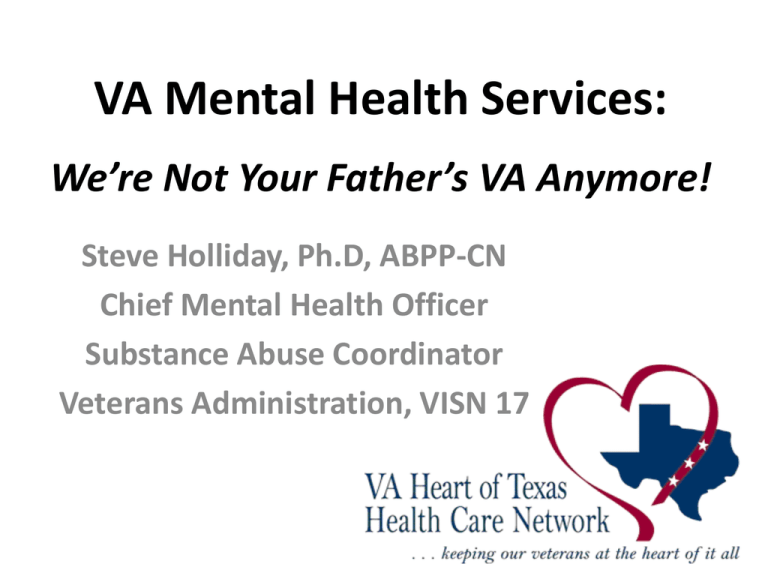
VA Mental Health Services: We’re Not Your Father’s VA Anymore! Steve Holliday, Ph.D, ABPP-CN Chief Mental Health Officer Substance Abuse Coordinator Veterans Administration, VISN 17 VISN 17 Eligibility Issues • Not Eligible for VA Care while Incarcerated – Except for brief outreach visits • OEF/OIF Vets have full eligibility for 5 years • Must have Honorable or General D/C – Bad D/Cs can be upgraded • Served >180 days or Service-connected • Co-Pays at Higher Incomes Unless SC MH in Primary Care • Co-located Mental Health in Primary Care – Reduces Stigma for Seeking MH Care – Rapid Access for MH Screening/Services – Treatment for Mild MH issues • Adjustment Issues/Life Stress • Uncomplicated Depression & Anxiety D/Os • Harm Reduction/ME for SUDs – Referral to MHC/Specialized Tx Programs • Up to 80% of Cases Managed in PCC • Healthy Behaviors/Disease Mgmt Substance Abuse Treatment • • • • • • • Building Motivation/Education in PCC & MHCs Outpatient SUD Program Intensive Outpatient SUD Program SARRTP (28 Day Residential) SUD Tracks in Doms (90-Day Residential) Buproprion/Methadone Programs Inpatient/Outpatient DETOX Homeless Programs • • • • • • • Ending Homelessness in 5 years! Health Care for Homeless Veterans Contact Emergency Shelters Homeless Domiciliaries Grant and Per Diem Transitional Housing HUD/VASH Vouchers (10,000 more coming) Emergency Cash Assistance to prevent Homelessness Vocational Rehabilitation • • • • • • • VBA Educational Benefits (30%+ SC) Incentive Therapy (IT) Compensated Work Therapy (CWT) Supported Community Employment Job Search Assistance Assistance with VA/SSDI Claims (VSOs) Volunteer Positions Rehabilitation/Recovery Model • Recovery is possible for everyone (even SMI) • It’s the Vet’s Recovery Plan; Not the Doc’s – Uses Understandable Language – Based on Vet’s Strengths, Goals – Peer Counselors/Technicians as Role Models • • • • Include Consumers in MH Planning/Mgmt Meaningful Work is the Best Therapy Building Support Systems in the Community Educating to Reduce Stigma/Facility Recovery Coordinators Tele Health Services • Telemental Health Services – EBTs from the Hospitals to Remote Clinics – Cross coverage for Smaller MHCs – “Health Buddies” to Monitor SMI at Home – Home-based Videophones for Highly Rural – Reduces Barriers of Distance & Stigma • Future Directions – Anonymous Chat Rooms (Suicide Hot Line) – Peer Support Networks – Secure Email with MH Providers Distance Consultation OEF/OIF Resources • www.texvet.com – On Line Searchable Database – Texas MH, Job, Education, Emergency Services – Eligibility Tool Under Development • 211 Texas – Just Dial 211 – 24/7 Information Line – Services for Vets/Active Duty • Vet Centers – Storefront locations, walk-in service – Veteran and Family Counseling – GWAT Outreach Staff The Best Medical Care in the U.S. The VA uses the data gathered in its computers to pinpoint problem areas, such as medication errors. The network also allows it to track how closely the medical staff is following evidence-based treatment and monitor deficiencies. Such tracking pays off. When Rand did an extensive study comparing quality of care at the VA with private-sector hospitals, it found that performance measurement played an important role in helping the VA score higher in every category except acute care, where it came in about even. Business Week, 2006 VA medical system earns high customer satisfaction ratings Good news about government is rare enough. What's outright shocking is when that good news is about how nice government employees are. But that is the bottom line of the recently released American Customer Satisfaction Index report on the Department of Veterans Affairs' medical system. Not only do veterans rate their VA care much higher overall than the general population rates its hospital experiences, vets also consistently give VA doctors and nurses high scores for "responsiveness" (83 out of a possible 100), courtesy (90), and "respect and dignity afforded patients" (91). National Journal February 10, 2006
